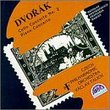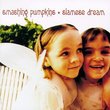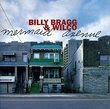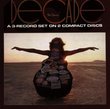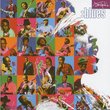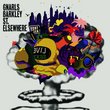| All Artists: Elliott Smith Title: From a Basement on the Hill Members Wishing: 1 Total Copies: 0 Label: Anti Release Date: 10/19/2004 Genres: Alternative Rock, Folk, Pop, Rock Styles: Singer-Songwriters, Indie & Lo-Fi, Contemporary Folk, Singer-Songwriters Number of Discs: 1 SwapaCD Credits: 1 UPCs: 045778674121, 094638632856, 5034202014751, 5034202114710, 5034202114727 |
Search - Elliott Smith :: From a Basement on the Hill
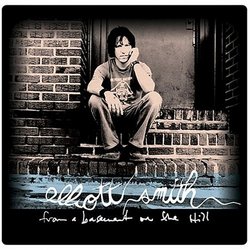 | Elliott Smith From a Basement on the Hill Genres: Alternative Rock, Folk, Pop, Rock
Elliott Smith has been a patron saint of the indie scene since his days helming Portland heroes Heatmiser. As a solo artist, his fondness for Beatlesque melody led to some of the most beautifully orchestrated pop of the la... more » |
Larger Image |
CD DetailsSynopsis
Album Description Elliott Smith has been a patron saint of the indie scene since his days helming Portland heroes Heatmiser. As a solo artist, his fondness for Beatlesque melody led to some of the most beautifully orchestrated pop of the last decade. This is his final recording, which found him returning to an edgier, guitar-driven sound, alongside his trademark heart-rending balladry. MUZE Notes: Elliott Smith's death in 2003 left a cavernous hole in the world of popular music. Tender, intimate, and painfully honest, the songs in Smith's catalogue capture the fragility of human existence with rare, breathtaking beauty. On his first posthumous release, Smith reaffirms his status as an extraordinarily gifted artist, giving fans yet another reason to mourn his tragic loss. Conceived as an ambitious double album, FROM A BASEMENT ON THE HILL was ultimately narrowed down to 15 tracks by Smith's close friends, producer Rob Schnapf (Beck's MELLOW GOLD, Smith's X/O) and musician Joanna Bolme (the Minders, Stephen Malkmus & the Jicks). The result is a heartbreaking collection of songs that plays like a retrospective of Smith's entire career. "Strung Out Again" reflects the early edge of ROMAN CANDLE; "Last Hour" recalls the bittersweet melodies of ELLIOTT SMITH; "A Fond Farewell" is a sad anthem in the tradition of EITHER/OR; "Shooting Star" employs the more polished sound of ! X/O; and "Don't Go Down" is an extension of the more electrified FIGURE 8. Of course, the most haunting aspect of FROM A BASEMENT ON THE HILL is the lyrical content, which is impossible to hear without placing it in the context of Smith's untimely passing. Similar CDsSimilarly Requested CDs
|
CD ReviewsA final summation of the work of a talented artist Alex Junaid | Denver, CO | 10/19/2004 (4 out of 5 stars) "There's obviously a certain amount of buzz surrounding this record. It's been a full four years since the release of Elliott's last studio album, Figure 8, and practically since that time, fans have been clamoring for the follow up. Rumors of Mr Smith releasing a defining work - the White Album of his time - began to surface. There were whispers of a double-disc release, an epic masterpiece unlike anything in his back catalouge. And of course the biggest bucket of gasoline on the fire was the artist's death under dubious circumstances 363 days before the album sees the light of day. In the wake of that tragedy, Rob Schnapf - a former producer and collaborator of Elliott's who worked with him on the masterful Either/Or - and Joanna Bolme - another collaborator in a similar fashion, as well as an ex-girlfriend - worked together to piece the completed tracks into a posthumous release. The result stands as a 15 song, single-CD collection that isn't quite the godsend it was rumored to be, but certainly stands with the best work of a very talented songwriter. Were one to listen to Smith's six albums in order, there's a certain entropic element in the musical progression (not to mention that each record gets progressively longer - this clocks in just shy of an hour - six minutes longer than Figure 8 and nearly twice as long as Smith's solo debut Roman Candle. But I digress). From A Basement on the Hill continues in that tradition, as is evident right from the bombastic opening of 'Coast to Coast.' A spooky string ensemble gives way to a distorted and percussive bombast, typical of the harder-edged songs on this album. In addition, the electric-sludge mix of 'Don't Go Down' and the epic 'Shooting Star' (Smith's longest studio recording that I know of at six minutes) assure that this is the most "rock" album in the singer/songwriter's catalouge. While the bulk of the songs fall into a pleasant middle ground, these powerhouse, wall-of-sound tracks are balanced out by quieter throwbacks to the more acoustic-driven style of Elliott's Kill Rock Stars albums (the self-titled work and the aforementioned Either/Or). The most obvious of these is 'The Last Hour,' an underprodouced vocal harmony and acoustic guitar track. The somewhat more uptempo 'Let's Get Lost' and the somber 'Little One' are a bit slicker sounding, but would still be at home on earlier works. There are elements of the adventurous nature of this record scattered about here and there. For example, both 'Coast to Coast' and the superb 'King's Crossing' contain found-vocal samples and the latter takes nearly two minutes for the vocal to kick in - a change from Smith's typically very direct style. And then, there's 'Ostrich & Chirping' - a hallucinatory intermission that sounds like something out of a 1940's Disney movie. For the first time, full lyrics are not included in the liner notes for the album - quite probably because of Elliott's passing. Instead, actual handwritten lyric sheets (one on hotel stationery, another obviously crumpled up at one point and all contaning cross-outs and margin scribbles) appear for a handful of the songs. But the vocals are mixed very cleanly and Elliott's characteristic themes of loss, addiction, death and anger manage to shine through. It's difficult not to reflect on Elliott's death when listening to Basement, but viewing the album as a suicide note is very much unfair, given the time period during which most of the songs were written (largely 2000-2002, to my knowledge). However, tracks like 'A Fond Farewell' with lines like "A dying man in a living room / whose shadow paces the floor / who'll take you out any open door / this is not my life / it's just a fond farewell to a friend / who couldn't get things right" or 'A Passing Feeling' which laments "Though I'm beyond belief / in the help I require / just to exist at all / took a long time to stand / took an hour to fall" do take on a new poigniancy. The standout tracks here are the aforementioned 'King's Crossing,' and 'Twilight' - an absolutely heartbreaking ballad midway through with a devastatingly beautiful instrumental verse that's just icing on the cake. The record's closer is also noteworthy. The awkwardly titled 'A Distorted Reality is Now a Necessity to Be Free' has been renovated from the quirky b-side that appeared in late 2003. It now stands as a guitar driven crescendo and an acerbic political statement that closes things on a definite high note. There's some question, of course, as to how this version of the album would stand against what we might have seen had Elliott lived to oversee it's release. Unfortunately, it's one of those things we'll never have the answer to, but what we do have is a very fine album, to be sure. It's not as raw as Either/Or or as immediately accessable as XO, which are generally regarded to be his two finest works. But nor is it as fussy and relatively emotionless (relatively being the operative word there) as Figure 8. Instead, I'd go so far to say that, because of how it was finally created, Basement is probably the most peculiar balance of a raw unpolished messiness and carefully constructed melody, and it's certainly the biggest "grower" (that is to say that it takes a little time to really appreciate) in Elliott's catalouge. The only taint on this worthy addition to the canon, is that it is the final work, yet it seems to sit right on the edge of something incredibly profound, and just as elusive. Though maybe that, in and of itself, is a testament to a great man's genius. " There For You K. H. Orton | New York, NY USA | 10/23/2004 (4 out of 5 stars) "I'm really not prone to entertaining myself with 2nd guessing what Elliott Smith's eventual intentions were for these songs. I'm also not interested in analyzing the production. What I can tell you is that BASEMENT has exceeded my expectations. Like all his best work, I'm finding it a real chore getting it out of my cd player. "Coast To Coast" starts off with this distorted orchestra & then bursts into a wall of sound. Starting things off on an uncharacteristically, aggressive note. I think the heart of this album can best be summed up in what I find to be it's most addictive track, "King's Crossing". "This is the place where time reverses/and where dead men talk to all the pretty nurses". Or more simply, "cos' I took my own insides out". For a night on the town, presumably? Good one, Elliott. There's not much for real fans to be upset about here. Let alone disgusted (as I've read in some other reviews). The aching fragility of "Twilight". The perverse jauntiness of "Memory Lane". "Let's Get Lost" is an aptly beautiful place to do so. & "Last Hour" sounds like it quietly tip-toed off one of his early albums. BASEMENT is by no means perfect. No posthumous album is going to be. But to these ears, it doesn't excactly sound all dressed up for an open casket funeral. All I can say is, the end results are a lot darker & somewhat more diverse than FIGURE 8. I've been listening to this guy ever since ROMAN CANDLE came out. EITHER/OR is one of my favorite albums of the 90's. Those catchy Beatle-sque hooks. Lonesome fingerpicking. Scathing lyrical insights. That uncanny knack for stumbling upon a universal truth & then shrugging it off. I'm sure most fans can agree on where his real strengths lie. Well, inbetween all the gushing odes of blind devotion & self-righteous outcries of disappointment, it's here waiting for you. When you get around to it. Excuse me, gotta go hit the PLAY button again." Clementine and Adeline and Amity, too R. Humphrey | Little Rock | 10/20/2004 (5 out of 5 stars) "Elliott Smith has long been my favorite musician. Like many Elliott fans, his music ushered me through a difficult time in my life. I've been anticipating this album for four years, and it's really odd to finally have it in my possession. 'Roman Candle' and 'Either/Or' are my two favorite albums of his, so I was a little dismayed when I heard early reviews that the new record was upbeat and a total departure from what he had previously recorded. I like the stripped down, raw nature of his first three albums. However, I was pleasantly surprised to find that, though this cd is unlike anything else he has done, it is beautiful and heartfelt and thoroughly Elliott Smith. The album shares some vague similarities with 'XO' and 'Figure 8', but it is definitely its own creation. Though I am normally drawn to the simplicity of his early work, the complexity of the songs on 'From a basement on the Hill' is what I find so intriguing and lovely. For the critics who have complained that Elliott's music all sounds so similar, this album will definitely provide a compelling defense. It is too early to tell where this album will rate on my list of Elliott's music, but it's safe to say it is well worth the wait. Thank you, Elliott.
" |

 Track Listings (15) - Disc #1
Track Listings (15) - Disc #1

